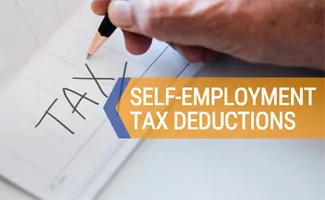When you purchase through links on our site, we may earn a commission. Here’s how it works.

The tax law effectively assumes that the presence of an affiliate in another state translates into the affiliate provider operating as a business in that state. In other words, the business has nexus (is affiliated with) that state. The affiliate program tax is being disputed by companies such as Amazon, Overstock, Blue Nile, and others that offer affiliate programs.
What Is An Affiliate Program?
An affiliate program is a program that offers commissions and incentives to sellers that sell other people’s products or services. For example, Amazon pays you, as an Amazon Associate (their term for affiliate) a commission if you help sell their products. The commission structure varies, but typically the larger the affiliate provider (Amazon being one of the largest players in the game) the lower the commission.
Smaller affiliate providers on networks such as CJ (Commission Junction), Clickbank, etc. – basically networks that bring small businesses and affiliate marketers together, tend to pay much higher commission rates. We’ve seen commissions that exceed 50% (but 5-10% is more typical). Click here to learn more about Amazon Associates and other affiliate programs.
How Much Money Does Amazon.Com Make From Affiliates?
Amazon.com has a whopping 40% of its revenues to thank to its affiliate marketers. So why on earth would they be shutting down entire states worth of affiliates? Because the hit from having to pay sales tax in every state would outweigh the loss of a few states worth of affiliate marketers. And of course, in the long run, they would be saving billions of tax dollars by winning.
However, recently it looks like the legislation is inevitably heading in the direction of merchants having to charge sales tax based on the buyer’s residence, regardless of whether or not they operate a physical location in that state. Makes sense to us, since the physical retailers already suffer a disadvantage due to overhead costs associated with real estate, office rental, shelf space, floor staff, in store marketing and advertising materials, etc.
Will The Affiliate Nexus Tax Work?
The problem with the current incarnation of the affiliate program tax is that it creates massive overhead, as well as effective double taxation, for affiliate companies. They pay sales tax on a sale you make, and then you pay income tax on the commission on that sale. In this economic climate, governments are using every tax they can to buff up their budgets.
However, this may be one they haven’t thought through. They are looking directly at the numbers they could be making, assuming all affiliate transactions are taxed. The problem is affiliate program providers, including Amazon, Overstock, and Blue Nile, will simply stop doing business in states that enact an affiliate program tax.
Which States Are Affected by the Affiliate Program Tax?
Avalara keeps an up to date list of states with affiliate nexus laws. When you sign up for Amazon Associates’ program, you’ll see a notice if your state is affected.
Performance Marketing Alliance
Check out the Performance Marketing Association website for the latest updates on action taken against unconstitutional affiliate tax laws, and how you can help keep affiliate marketers in business in your state.
What Are The Best Affiliate Programs?
If you’re wondering where the best commissions lie for your content, look no further. We’ve pitted the top commission networks and programs against each other in our head-to-head comparison of the best affiliate networks for publishers.
Are you concerned tax laws may affect your affiliate relationships? Let us know in the comments!
Tagged With: Affiliate Marketing


